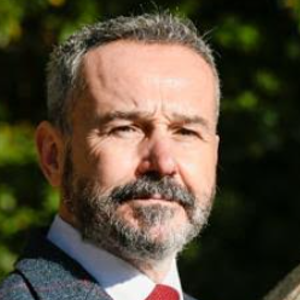
The Granada Standard is the most widely used method for economic valuation of urban trees in Spain. This method has been in use for more than 30 years and, in 2020, it was revised and adapted to new trends and realities.
Through the approval of the Portuguese Urban Tree Law, the legal regime of the Portuguese urban forest has incorporated this tool that considers various factors that attribute value to plant elements, such as landscape, environmental, social and cultural aspects. Article 17 of the Portuguese Law establishes a series of compensation measures to contribute to the maintenance of the environment and guarantee the development of green infrastructure.
The workshop will focus on this Standard, explaining the work philosophy and explaining its methodology with practical examples.

President of Spanish Association of Public Parks and Gardens

President of Spanish Association of Public Parks and Gardens
Pedro Calaza-Martínez. PhD in Landscape Architecture from the University of Lisbon and PhD in Agricultural Engineering from the USC. Dean of the Official College of Agricultural Engineers of Galicia, President of Spanish Association of Public Parks and Gardens, Director of Galician School of Landscape, and vice president of the Galician Engineering Council. Collaborator of the WG7 of urban and peri-urban forests of FAO.
He develops his professional work as senior consultant in planning, design and management of urban green infrastructure. He complements his activity as a researcher and professor of landscape architecture. He has published articles and books and lectured in different countries. Director of Norma Granada (Spanish official Tree Appraisal Method) and the “Santander Charter” of the AEPJP and Director of the Green Infrastructure Guide of “Spanish Federation of Municipalities and provinces”.
His prizes include: Cecil Konijnendijk Award for Outstanding Research on Urban Forestry and Urban Greening (2022), 46º San Miguel National Prize of Agrarian Book (2017) for his work “Green infrastructure. Natural health system” and Juan Julio National Award (2012): “Woodland risk assessment: principles, indicators and methods”.
The Green Flag Award scheme encourages the provision of good quality public parks and green spaces that are managed in environmentally sustainable ways. In the past 28 years the Green Flag Award Scheme has helped to create public recognition of good quality green spaces covering a diverse ranged of spaces from urban parks to cemeteries and in doing so has built people’s confidence and expectations of them. The Green Flag Award Scheme has experienced significant growth and now includes award winning spaces in the United Kingdom and across the world. Join Michele Walde the Schemes Learning and Development Manager and Lynsey Atherton the Programme Manager to learn more about the scheme, increase the awareness and benefits of the Green Flag Award Scheme and consider how it can be used to deliver good quality parks and green spaces for your community.

Trainer of Green Flag Award juris

Trainer of Green Flag Award juris

Green Flag Award Development Officer

Green Flag Award Development Officer
Lynsey is responsible for ensuring the accreditation programmes are delivered effectively, efficiently and following ISO 9001 standards.
She has a wealth of experience in seaside and green spaces and provides invaluable advice to potential applicants to help them improve their facilities and meet the rigorous standard of Green Flag Award, Blue Flag or Seaside Awards and the Green Key programme for sustainable tourism establishments.
The use of native and Mediterranean plants and their potential for use in public spaces.
Production of native species:
Resilient and drought-resistant garden design with a unique and original character:

Managing Partner of the company SIGMETUM

Managing Partner of the company SIGMETUM
Filipe Tavares Soares is the Managing Partner of SIGMETUM, where he coordinates the production of native plant species.
He holds a degree in Landscape Architecture from the University of Évora (1995-2003) and gained early experience through an internship at Novo Sol Plantas (1997-1999). After working as a landscape architect at Atelier Rio Plano (1999-2009), Filipe co-founded SIGMETUM in 2009, in partnership with Viveiro Novo Sol Plantas, with a focus on native species.
He later established a nursery at the Instituto Superior de Agronomia in 2011 and, in 2020, opened a new nursery in Poceirão-Marateca, furthering his commitment to preserving native ecosystems.